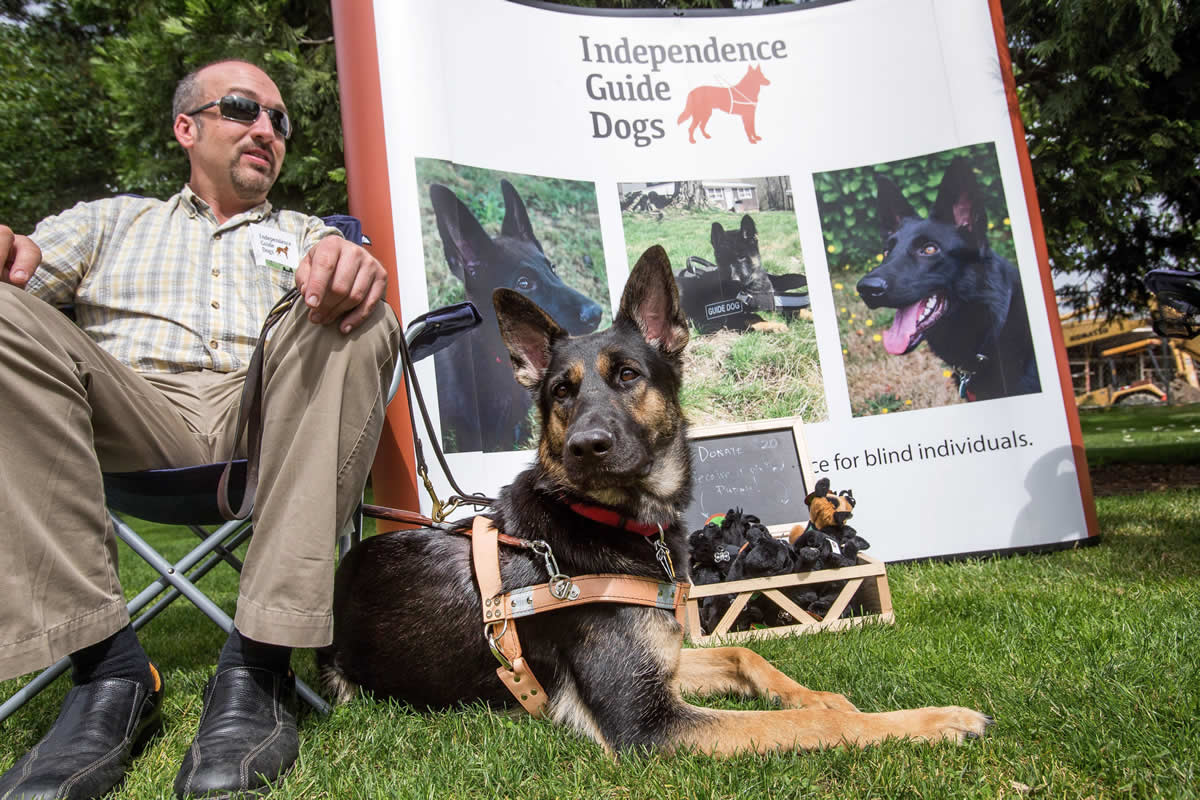SEATTLE — Meeting with Toby Willis, you may not notice his visual impairment.
He greets you with a cheery smile and a friendly handshake. He makes eye contact during conversation. He treads carefully but confidently, sans walking cane.
But you will notice his sidekick: a young German Shepherd guide dog named Dazzler. Willis, at 40 years old, has gradually lost his vision to retinitis pigmentosa since early childhood. He said his guide dog has been a big factor in creating a normal life for him, increasing his sense of safety and freedom, and expanding social opportunities.
Disheartened by the shortage of guide dogs available for visually impaired individuals in the U.S., he was inspired to take matters into his own hands. In 2011, he founded Independence Guide Dogs, a nonprofit organization based at his home near Georgetown, to help train guide dogs for blind and visually impaired individuals.
IGD is run predominantly by a group of 30 volunteers, Willis included, as well as two certified guide-dog trainers and a few contractors. Their mission, he said, is to increase independence for individuals — hence, the name of the organization.
“Not only does (a guide dog) provide safer, faster travel, self-confidence and security, there’s also a great social catalyst that few people think of,” he said. “You know, I often say, “Nobody ever wanted to pet my white cane’ … The dog allows me the opportunity to meet people, which is really important in today’s professional community that requires that we be good networkers.”
An estimated 12,000 people use guide dogs in the U.S., and the wait time is typically three to six months, according to Marion Gwizdala, president of the National Association of Guide Dog Users. IGD is the first guide-dog training organization based in Washington and second in the Northwestern U.S.
After a long period of fundraising through small dinner parties, social-media promotion and outreach to corporate sponsors, IGD was able to train then match its first two German Shepherd puppies, donated by private breeders, with owners in the past couple of months. A committee of trainers and professional care providers reviewed each applicant’s health and mobility information, which included a video of the applicants walking to demonstrate their gait and stride.
Dazzler turned out to be a good fit for Willis, who recently retired his previous guide dog of eight years.
The other German Shepherd, Bozzy, was matched with Janis Limon, from Arizona. Limon, 59, had owned several guide dogs in the past 38 years before finding IGD online. She was matched with Bozzy a couple of months after applying, a vast improvement from the one-plus years she has had to wait for past guide dogs.
Since meeting Bozzy, Limon has been able to more easily lead the active and independent lifestyle she strives for-in which she travels by foot at least three miles per day. She considers him “without a doubt” the most hardworking and healthy guide dog she has had.
“When you get the harness out, he’s ready to go,” she said. “That’s what he lives for, that’s what he loves to do … All he wants to do is to please you.”



